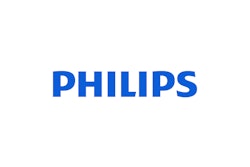In completing its acquisition of Shared Medical Systems, Siemens has officially fulfilled its desire to expand into the broader market for healthcare information systems. While it moves forward with the integration of SMS, Siemens is also busy preparing new PACS initiatives of its own.
Siemens has begun the process of integrating its new wholly owned subsidiary by appointing a multidisciplinary integration team that includes both Siemens and SMS specialists, according to Rik Primo, director of IS/PACS at Iselin, NJ-based Siemens Medical Systems.
Although specific product decisions have not yet been made, Siemens expects to announce a number of enhancements to its PACS line at this year’s RSNA meeting. A likely priority will be the integration of Siemens’ Sienet PACS software and version 25 of SMS’ Radiology Management System to enable the products to work together without an additional interface, Primo said. In addition, the firms will probably turn over some PACS functions to RMS modules, which will provide features such as a modality worklist.
As the integration process gets underway, Siemens has also begun to reap the rewards of its own recent product development efforts. At the Symposium for Computer Applications in Radiology (SCAR) meeting in June, the vendor introduced MagicStart, an entry-level PACS offering targeted for community and rural hospitals. For a list price of $240,000, MagicStart purchasers would receive a 40 gigabyte RAID array for short-term storage, a 50-platter magneto-optical disk (MOD) jukebox offering compressed long-term data storage up to half a terabyte, data management software, and soft-copy viewing software.
If customers want to progress to a large-scale PACS, their options include connecting to a clinical review workstation in an ICU/CCU, linking to a computed radiography reader in the emergency room, integrating with a RIS, or adding a Web server to distribute images and reports over a hospital intranet and Internet through thin-client workstations and Active X protocols.
"By adding these options, you gradually grow into a full-blown PACS network," Primo said.
The first MagicStart implementations are scheduled to be up and running by September, Primo said.
Siemens is also serving notice that it will be a player in the burgeoning application service provider (ASP) marketplace. The vendor expects to launch off-site long-term archiving services over an ASP model by this year’s RSNA meeting. In development for two years, the ASP service has been tested in laboratory settings and will be put into clinical testing by September, Primo said.
Siemens is using third-party data warehouses to support the service, he said. Currently, the firm has secured sites in New York City as well as the Chicago area. Other locations -- in San Francisco, Los Angeles, Denver, Dallas, and Atlanta -- will be added by the end of 2000. Pricing for the service has not yet been determined. MagicStart users in particular, though, would benefit from the off-site archiving services, he said.
"With the HIPAA legislation coming up, institutions will have to provide redundancy and disaster recovery," he said. "It’s very difficult for small hospitals to have these services and to staff them."
Down the road, Siemens plans to expand the ASP services to support larger-scale PACS applications. Siemens also expects to take advantage of SMS’ long-standing expertise with ASP services, Primo said.
"The acquisition timing couldn’t be more perfect," he said. "SMS offers ASP modules for its HIS and RIS software, while we’re getting ready to offer limited ASP service."
Siemens has also been developing a small-scale electronic patient record application, showcasing the work-in-progress software at the 2000 Healthcare Information and Management Systems Society and SCAR meetings. Called Web EPR, the software is designed to offer Web-based access to departmental information systems, such as laboratory, oncology, and cardiology systems, Primo said. Web EPR is in beta testing at several sites in Europe, with commercial deployment scheduled for mid-2001, he said.
By Erik L. Ridley
AuntMinnie.com staff writer
August 7, 2000
Related Reading
Agfa, InPhact forge partnership, July 19, 2000
GE readies launch of PACS application service provider program, July 19, 2000
ALI upgrades entry-level PACS software, July 7, 2000
PACS veteran offers real-world lessons to PACS implementation, July 3, 2000
Siemens-SMS merger gets German OK, June 30, 2000
New HIPAA rules portend sweeping changes in medical data security, June 27, 2000
eMed lands data distribution deals, May 31, 2000
Philips buys majority interest in MedQuist, May 23, 2000
Algotec pursues ASP model in bid for PACS market success, May 2, 2000
Siemens inks deal to buy IT firm Shared Medical Systems, May 1, 2000
InSite One aims to trim archiving expenses with InDex, April 26, 2000
Cerner to offer its technology as an ASP, March 17, 2000
Let AuntMinnie.com know what you think about this story.
Copyright © 2000 AuntMinnie.com




















